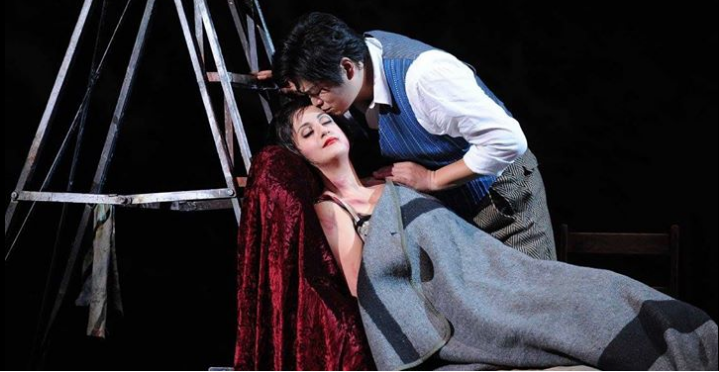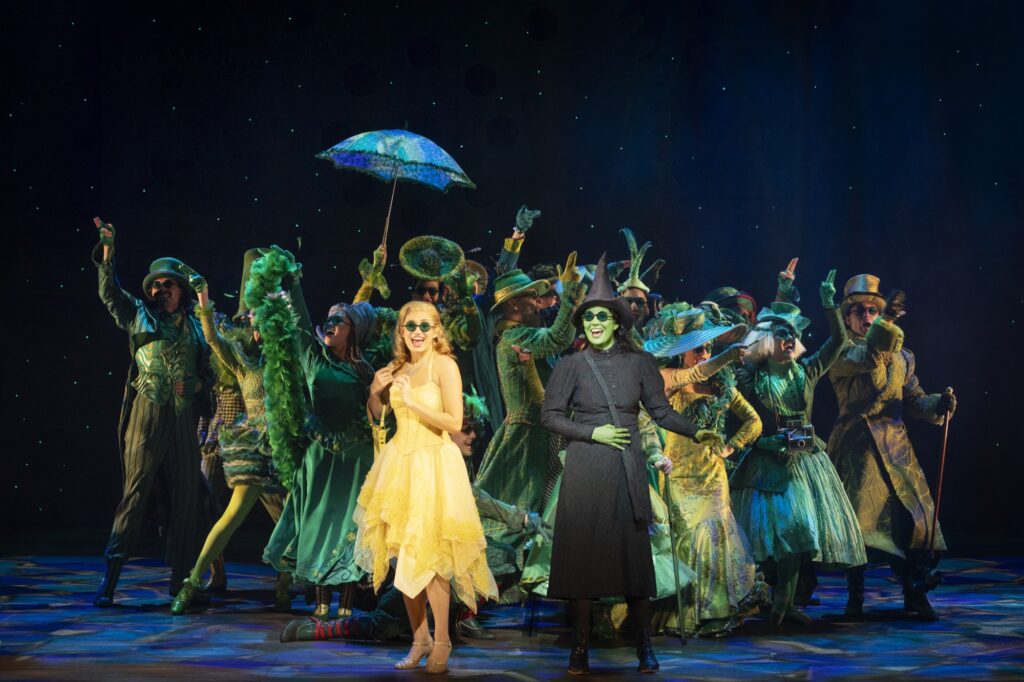What to wear? That was the primary dilemma faced ahead of a night at the opera. It was my first time: opening night of La Bohème, which coincided with Opera Australia’s 60th anniversary. I figured the State Theatre would be filled with well-dressed high society types, all flaunting their wealth and superior taste. I didn’t want to pose in tux and tie, so I asked myself, “What would Prince do?” Probably wear a satin blouse and fur coat, I thought. So I followed his lead then hurried along to arrive in time for a pre-show drink.
It’s with no aversion that I hadn’t gone to the opera until now, but to say I felt like a bit of philistine would be an understatement. I briefly researched La Bohème before coming, but didn’t go too far so as to not dilute the experience. Regardless, once the show got going it became apparent it wasn’t going to be a complex, hard to decipher spectacle.
La Bohème begins as something of a slapstick romantic comedy. There were a few moments during the show’s first half that I was reminded of Grease. To be sure, the context is utterly unrelated, but both texts depict two people falling in love and letting everyone else know about it by singing loudly about the most trivial things. Though, for those in the throes of infatuation, trivial experiences are of precious value. At least that was the impression conveyed by Mimi (Lianna Haroutounian) and Rodolfo (Gianluca Terranova), and when cutesy romantic projections are bellowed in operatic baritone and soprano, it’s hard to disagree.
La Bohème was written in the late 19th century, an Italian opera set in mid-19th century Paris. This adaptation from director Gale Edwards moves the action to 1930s Berlin; the tail end of the Weimar Republic. Maybe this should’ve been obvious, but I didn’t learn this detail until after the performance. The precise setting isn’t overly important for understanding the love story at the heart of La Bohème, but there are certainly some political implications.
Rodolfo is a poet, and his closest friends are a painter, philosopher and musician. None of them earns diddly-squat, which ultimately has tragic consequences for Mimi (oh that could be a spoiler, by the way). The Weimar years were a liberated time for Germany, but the prevalence of bohemian licentiousness angered conservative citizens so much that the country’s next elected leader was Adolf Hitler. You know how it seems absolutely ridiculous to think Donald Trump could be appointed US president? That’s probably what a Weimar-era bohemian like Rodolfo thought about this Hitler chap.
Rodolfo and his mates are basically self-absorbed slackers. While his love for Mimi is enormous, it doesn’t transform him into a hard working family man. Sure, maybe the social conditions didn’t afford him this option, but it still seems like a major flaw in his supposed universal love that he doesn’t try to earn enough cash to heat their apartment once in a while.
Anyway, enough about that. The performance and staging of La Bohème were pretty hard to fault. There’s an inherent absurdity to witnessing a narrative communicated in full, unflinching operatic voice. Hearing Mimi and Rodolfo singing through their initial courtship, one couldn’t help but chuckle. Surtitles translating the Italian libretto to English were beamed from atop the stage. They were more than a touch distracting, especially considering the story was pretty easy to follow. That said, if they hadn’t been there’d have been complaints about struggles to grasp the intricacies of the plot (though, aside from the aforementioned failings in Rodolfo’s morality, there were scarce intricacies to be found).
An orchestra, positioned in a bunker in front of the stage, re-presented Puccini’s original score. The score accentuated the gaudy tone of the plot. Every swerve from comedy to drama was patently spelled out by a non-subtle shift in the musical accompaniment; whimsical major key flute runs swiftly making way for intense minor key string stabs. Nevertheless, the orchestra played beautifully under the guidance of conductor Andrea Molino, and the State Theatre acoustics made it feel like we were all swimming in symphonic noise. Me and the high society types. We were all in a good mood. La Bohème was easy viewing and the talents of the performers provided plenty to marvel at. And no one seemed to mind that I showed up dressed as Prince.
BY AUGUSTUS WELBY
LOVED: Mimi. Poor Mimi.
HATED: Rodolfo, lazy sod.
DRANK: Red wine.







